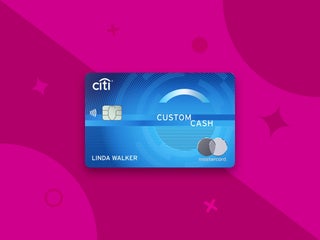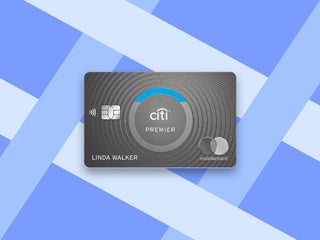Summary
Offering a low interest rate for the first 21 months on balance transfers, the Citi Simplicity is a solid balance transfer card for people with good to excellent credit.
The content on this page is accurate as of the posting date; however, some of our partner offers may have expired. Please review our list of best credit cards, or use our CardMatch™ tool to find cards matched to your needs.
Citi is an Advertising Partner
The Citi Simplicity® Card is one of the best balance transfer cards on the market, featuring a 21-month 0% introductory APR on balance transfers, followed by a variable APR of 16.24% to 26.24%. With no annual fee or late penalties, this card is a solid choice for anyone shopping for a balance transfer card to pay off existing debt.
While the lack of an annual fee and late fees and flexible payment dates are beneficial for someone paying off balances, the Citi Simplicity Card is relatively low in other benefits. It doesn’t offer rewards or a welcome bonus, and the 0% intro APR offer on purchases is only 12 months (followed by the same 16.24% to 26.24% variable APR), which is at the low end of the typical 12- to 18-month period most cards offer.
If you’re interested in applying for the Citi Simplicity Card, it’s beneficial to know whether you have a chance at being approved. By evaluating your credit score and following the tips below, you’ll learn more about what is needed for your application to be accepted.
Credit score needed
In order to be approved for the Citi Simplicity Card, you’ll need a good to excellent FICO score. This means your credit score will need to be in the 670 to 850 range.
Although it is possible to be approved with a good credit score (670 to 739), having an excellent credit score will make it easier to be approved for the lower variable APR, ranging from 16.24% to 26.24%, once the introductory period is over. For better chances of approval, work on improving your credit score before applying – especially if you’re concerned about receiving a high variable APR in the long run.
What can I do if my application is declined?
If you apply for the Citi Simplicity Card and are denied, you have several options.
It’s always beneficial to check to see why your application was denied. Doing so can provide you insight into which areas of your credit need more work – and you can determine whether there are any unexpected errors on your credit report.
Credit report errors are fairly common, with one in five consumers having an error on “at least one” of their credit reports, according to an FTC study. Having substantial errors can cause you to be denied a loan or credit card you’d otherwise be approved for, so it’s important to get these errors fixed as soon as possible.
If your Citi Simplicity application is denied due to a low credit score, it may be helpful to consider similar card options that require lower credit scores for approval (though, unfortunately, the best balance transfer card options typically require good to excellent credit).
For example, the Discover it® Secured Credit Card is available to those new to credit or with poor credit scores, but its balance transfer offer is much less impressive: introductory APR of 10.99% for the first six months (for transfers that post during the introductory period), followed by a variable APR of 24.49%.
If you were denied due to a low credit score but are set on owning the Citi Simplicity, know that while boosting your score will take time and effort, it is possible. Read on to find out how to improve your credit score.
How can I improve my score to get this card?
It’s important to understand how your credit score is calculated in order to improve it. Your overall score is based on five factors, each affecting a different percentage of your overall score. These five factors are payment history, credit utilization, length of credit history, new credit lines and credit mix. Knowing how your credit management looks in each of these areas can help you point out exactly where you need improvement to boost your score.
Because payment history makes up 35% of your total credit score, the best way to boost your credit is to always make payments on time. A consistent payment history shows lenders you manage your credit well and will repay debt on time. The Citi Simplicity Card, in particular, makes paying on time fairly easy due to its flexible payment dates and lack of late fees. However, although you will not incur late fees, missing payments will still take a toll on your credit score.
Making up 30% of your overall credit score is credit utilization, which is based on your revolving credit. It can be calculated by dividing your current balances by your overall credit limit. Keeping this number low will positively impact your credit score and show lenders that you are not likely to overspend. Since this is the second most important factor in determining your credit score, it’s important to keep balances on cards as low as possible. Typically, it is recommended to keep your credit utilization under 30%.
Credit mix, length of credit history and new lines of credit are the remaining factors in calculating your credit score. While they may not make up as large of a percentage as payment history or credit utilization, they can still be useful in boosting your overall score.
Try diversifying the type of credit you have. This could include various credit cards, a car loan or even a credit-builder loan. Also, since length of credit history makes up 15% of your score, keep your credit cards open – even if you don’t use them a lot.
Bottom line
The Citi Simplicity Card features a 0% introductory APR for the first 21 months on balance transfers (made within the first four months, followed by a variable APR of 16.24% to 26.24%). This Citi credit card also has no annual fee, doesn’t charge late fees and is a beneficial card to pay down existing balances while avoiding high interest rates.
To be approved for the Citi Simplicity Card, you’ll need a credit score in the good to excellent range (between 670 to 850). However, having an excellent credit score is best, as you’re more likely to be approved and will avoid higher variable APR rates after the introductory period.
By following the tips outlined above, you can boost your score before applying (if needed) in order to qualify.
Editorial Disclaimer
The editorial content on this page is based solely on the objective assessment of our writers and is not driven by advertising dollars. It has not been provided or commissioned by the credit card issuers. However, we may receive compensation when you click on links to products from our partners.





